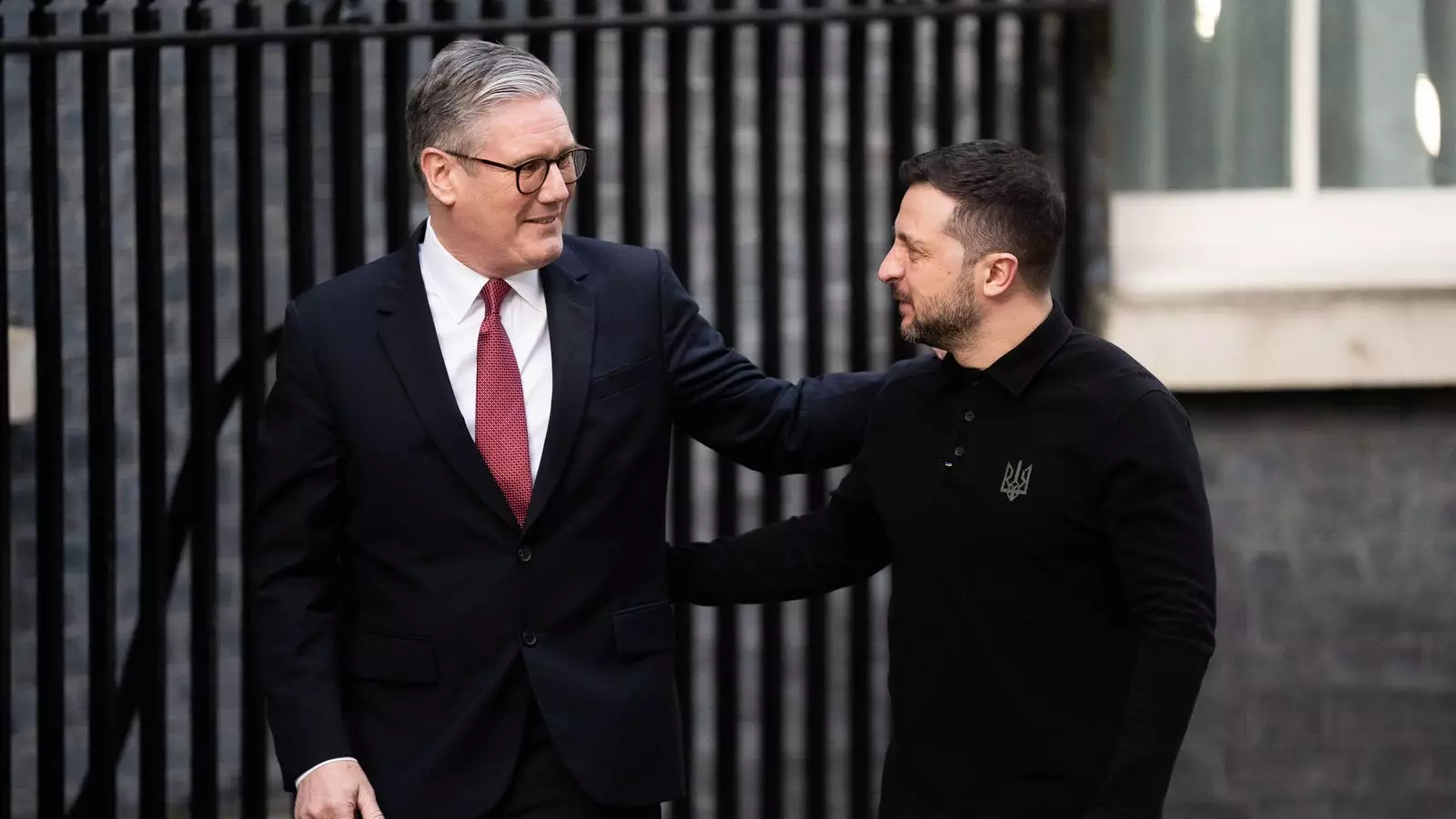In the ever-evolving geopolitical landscape of Europe, recent developments have highlighted the delicate nature of peace negotiations amidst ongoing conflict. Following a striking confrontation between Ukrainian President Volodymyr Zelenskyy and former U.S. President Donald Trump, the Prime Minister of the United Kingdom, Sir Keir Starmer, has committed to spearheading a collaborative ceasefire initiative alongside France and Ukraine. This article delves into the implications of such an endeavor, the complexities involved, and the underlying motivations shaping this crucial dialogue.
The Tension in Washington: An Unexpected Prelude
The atmosphere in Washington D.C. during the recent Oval Office confrontation showcased the high stakes of international diplomacy concerning the Russia-Ukraine conflict. The altercation, purportedly marked by heated exchanges among President Trump, Vice President JD Vance, and President Zelenskyy, sends ripples through global political circles. For Prime Minister Starmer, who publicly expressed discomfort over the discord displayed, this moment becomes a catalyst for change. It presents a crucial opportunity for Western leaders, who are increasingly concerned about the implications of the conflict escalating further.
Starmer’s disquiet regarding the “tension” he witnessed underscores the need for a united front in approaching the conflict’s complexities. His acknowledgment that “nobody wants to see that” reflects a broader sentiment among international leaders—an urgency to restore decorum and a focused dialogue that prioritizes the well-being of Ukraine and its sovereignty.
In the follow-up to the tumultuous events, Prime Minister Starmer engaged in a series of discussions with both President Zelenskyy and President Trump. The outcome of these dialogues proposed an innovative approach to the ongoing violence: the formation of a tripartite commitment among the UK, France, and Ukraine to devise a strategic ceasefire plan. Starmer revealed that discussions with French President Emmanuel Macron and possible collaboration with other European allies signify a concerted effort to alleviate the situation on the ground.
The crux of this plan hinges on the notion of mutual cooperation amidst escalating tensions. Starmer’s assertion that “the United Kingdom, along with France and possibly one or two others” will work with Ukraine is a bold step towards collective security — one aimed not only at facilitating a temporary cessation of hostilities but at creating a stable framework for enduring peace.
Trust Issues: An Uncertain Future
However, the question of trust looms heavily over these negotiations. Starmer candidly admitted that he cannot bring himself to trust Russian President Vladimir Putin, given his history of aggression and territorial ambitions. This skepticism poses a significant challenge for leaders attempting to reconcile conflicting interests and devise effective security guarantees for Ukraine. Starmer’s call for the inclusion of “strong Ukraine” in the context of political and military support is a rational approach reflecting an understanding that for lasting peace, Ukraine must be empowered to defend itself.
The notion that a “US backstop” is essential speaks volumes about the role America plays in global security. Starmer’s insistence on involving the U.S. in this plan reveals a recognition that any peace agreement devoid of American participation risks being hollow and ineffective in the long term.
The response from various political factions within the UK further illustrates the broad consensus on addressing the situation in Ukraine. For instance, Liberal Democrat leader Sir Ed Davey’s endorsement of deploying British troops as peacekeepers, contingent upon a credible ceasefire, is a significant indication of the gravity with which the UK Parliament views the crisis. On the contrary, Conservative leader Kemi Badenoch highlighted the critical need for European nations to ensure that America remains engaged, underscoring the reality that the ramifications of the conflict extend far beyond Ukraine’s borders.
Badenoch’s description of Zelenskyy as a “hero” encapsulates the admiration many feel toward Ukraine’s leadership amidst adversity. Her discomfort regarding the public spectacle of the White House confrontation echoes a widespread desire for more diplomatic decorum, emphasizing that difficult negotiations should transpire in a manner that fosters trust.
As discussions escalate and the coalition of allies formulates its ceasefire plan, the path to peace remains fraught with challenges. The stakes are high, with the potential for renewed violence always lurking. Nevertheless, the commitment from European nations to work together provides a flicker of hope in an otherwise dark chapter of history. Starmer’s belief in the possibility of lasting peace, grounded in strategic partnerships and strong guarantees, serves as a reminder that collective action may yet triumph over the deep-seated divisions that have long plagued the region.
The endeavor to establish a ceasefire and restore peace in Ukraine represents not only a pivotal opportunity for resolution but also an enduring testament to the resilience and unity of nations faced with adversity. The steps taken by leaders like Sir Keir Starmer may well define the future geopolitical landscape, as they navigate the treacherous waters of diplomacy in pursuit of stability and security.


Leave a Reply